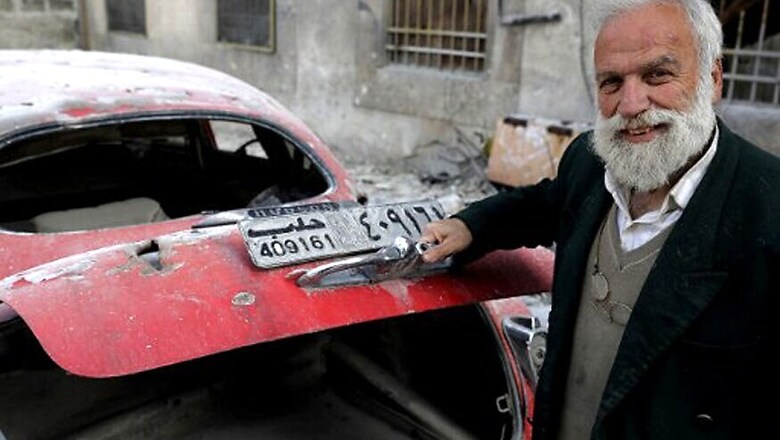
views
It was a picture poignantly framed by a war: a 70-year-old man in sandals, smoking a pipe beside an old record player, in the gray-dusted ruins of his bedroom in Aleppo.
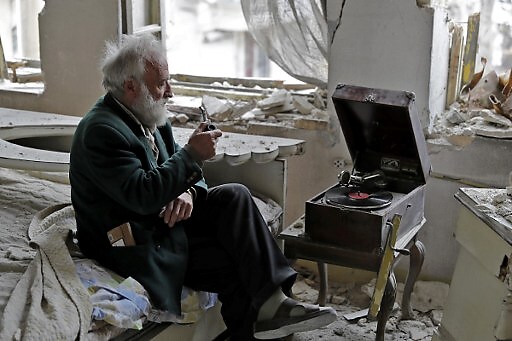
Mohammed Mohiedin Anis, or Abu Omar, 70, smokes his pipe as he sits in his destroyed bedroom listening to music on his vinyl player, gramophone, in Aleppo's formerly rebel-held al-Shaar neighbourhood on March 9, 2017. /AFP PHOTO/JOSEPH EID
The world has followed Syria's long civil war through viral images. Its horrors have been chronicled and politics humanized by victims and witnesses.
Even so, after six years of bombings and atrocities and dead children, rebel surges and army advances, a still frame of an old man on a bed stirred something deep in many people, across the globe.
The man on the bed is Mohammed Mohiedin Anis — better known as "Abu Omar" in the city where he made a fine life for himself before photographer Joseph Eid found him living in destitution last week.
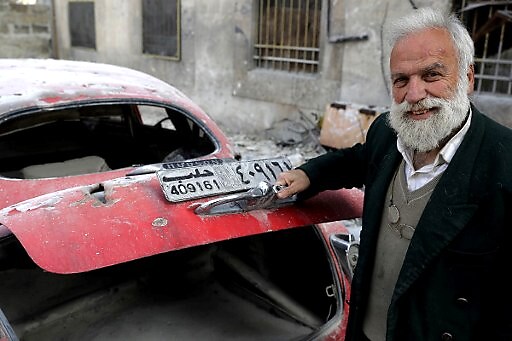
A picture taken on March 9, 2017, shows 70-year-old Mohammed Mohiedin Anis, or Abu Omar, opening the trunk of his 1949 Hudson Commodor outside his home in Aleppo's formerly rebel-held al-Shaar neighbourhood. / AFP PHOTO / JOSEPH EID
"He was a wealthy man," Eid told The Post. "He speaks five languages. He studied medicine, went to Italy and had a lipstick enterprise."
Anis, also known as Abu Omar, was first interviewed in a moving story filed by AFP in early 2016, when he was living in a rebel-controlled neighbourhood of the city.
Before the war he had been an enthusiastic collector of vintage cars.
He wore a feather in his overcoat in January 2016, and showed off his dwindling collection of vintage American cars, with which he was obsessed.
"When one of my cars is shelled, it's like I or one of my relatives has been hit," Anis told AFP.
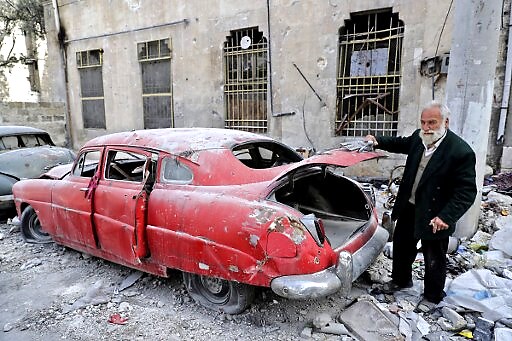
Mohammed Mohiedin Anis, or Abu Omar, opening the trunk of his 1949 Hudson Commodor outside his home in Aleppo's formerly rebel-held al-Shaar neighbourhood. / AFP PHOTO / JOSEPH EID
Several months later, after government warplanes demolished his neighborhood to retake it, “residents somehow convinced rebels not to mount a Dushka antiaircraft gun on his 1958 Chevrolet,” AFP reported.
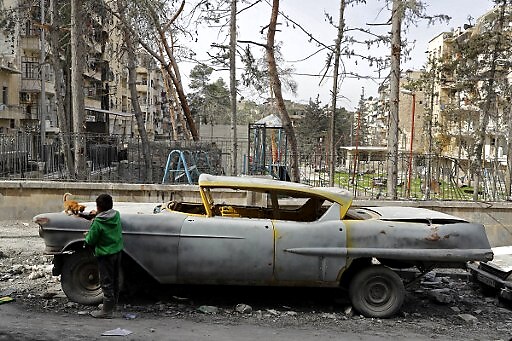
A picture showing a boy playing with a cat next to a 1948 Buick parked outside the home of Mohammad Mohiedine Anis in the formerly rebel-held al-Shaar neighbourhood./AFP PHOTO/JOSEPH EID
In December Aleppo fell completely back under government control after four and a half years of bitter fighting.
Beirut Bureau Chief of AFP, Sammy Ketz and photographer Joseph Eid recently travelled to the city to document how residents such as 70-year-old Anis were recuperating in what was once known as ‘the Jewel of Syria.’
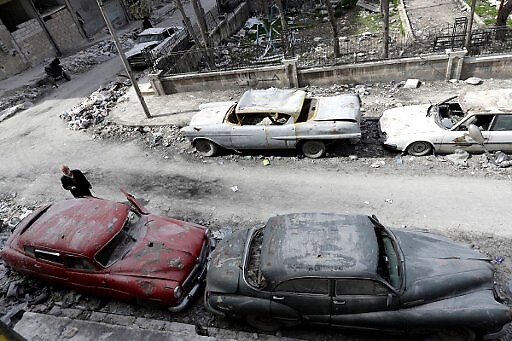
Anis, or Abu Omar, inspecting the cars parked outside his home in Aleppo's formerly rebel-held al-Shaar neighbourhood. /AFP PHOTO/JOSEPH EID
After being directed to his home by locals, the two journalists found that one third of his prized cars have been stolen or destroyed in the recent fighting.
Only a few cars remained. A collapsing wall had crushed his 1955 Buick Super. “Look, she is crying,” Anis said, pointing to a twisted grille. "Nothing will stop me from rebuilding, from living again. It's here I was born, and here I will die." Anis told Eid.
It was then, Eid said, that he realized that "it's not a matter about cars anymore. It's about an old man and his will to live."
Anis had fled Aleppo for a few weeks, during the worst of the government's bombing, and had only just returned. Rubble still littered the bedroom. The windows had collapsed in on themselves, and air from the destroyed city mingled with dust in the room.
While Anis showed them around his ruined home, he mentioned that his vinyl record player - which doesn’t need the patchy electricity supply to operate - was one of the things that brought him joy each day.
He lit his pipe, and played traditional songs by one of his favourite Syrian singers, Mohamed Dia al-Din.
He is extremely attached to his past and to the things that he always cherished and loved, and without them he will lose his identity which is why he insists on staying and getting back his life again, Eid told TIME.
The Syrian civil war which is on the brink of entering its seventh year, is far from over.
It is images such as these remind the wider world of the conditions Syrians still face.
"This picture touches the soul of the human being," Eid said.
"Whenever I feel or will feel any kind of despair or surrender to life’s problems and obstacles I will always recall the image of Abu Omar smoking his pipe while sitting on his rubble covered broken bed and listening to his favourite music." Eid added.




















Comments
0 comment